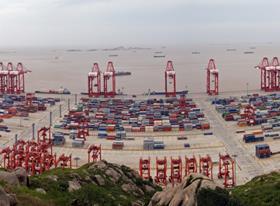
China has launched a free trade zone in Shanghai, easing restrictions on foreign investment within the area and stepping back from control on service sectors ranging from finance and shipping to cultural services.
The country’s commerce minister, Gao Huchen, was in attendance at the opening ceremony on Sunday 29 September.
The free trade zone covers an area of 29km². The reforms are intended to test China’s capacity to implement structural changes as it endeavours to adjust its economic model to combat slowing growth.
The government is set to allow conversion of the Chinese yuan for free under the capital account on a trial basis.
Market-set interest rates are also to be allowed for a probationary period, which many analysts believe is central to the country’s economic prosperity.
Kurt Huang, general manager of Shanghai Hongshen Freight Forwarding, helped elucidate some of the benefits to the local economy.
“The free trade zone will help Shanghai to develop, which means more income to the local people,” Huang told Asiafruit. “It will also improve the efficiency of public services including customs and quarantine, helping clearance happen more quickly.
“These improvements will make procedures more convenient and lead to more businessmen choosing to operate in Shanghai.
“As Shanghai becomes a trade centre, more liner services will make this their destination, which will certainly benefit the fresh produce trade.”
Huang does note, however, that the free trade zone is outside of the customs border, so there will be little immediate direct impact for fresh produce importers for the time being.
A variety of financial firms including the US’ Citibank, and China's largest four state-owned banks, are set to open branches in the zone.



